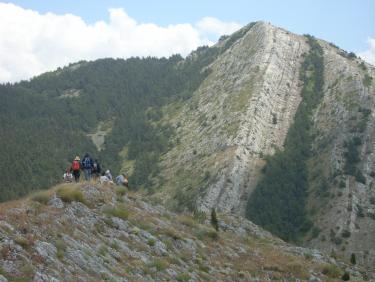Institute
The overall objective of the geosciences is to understand the origin and development of the planet Earth from its formation about 4.5 billion years ago until today. The Earth's surface – and thus the human habitat – is constantly changed and reworked by complex interactions between the geosphere, the atmosphere, the hydrosphere and the biosphere. Geologic processes take place on extreme time scales – from picoseconds (as in chemical reactions on mineral surfaces) to billions of years (as in plate tectonics and biological evolution).
The geosciences are particularly relevant to society not only in the early detection of geohazards such as volcanic eruptions and earthquakes, but also against the backdrop of current environmental and climate change: predictions about the Earth's near and distant future can be derived from the processes of the geological past. The geosciences therefore play a central role in answering questions about the impact of humans on the ‘Earth system’, the resilience of geo-ecosystems or the availability of geo-resources. Accordingly, geoscientists not only conduct basic research. In many cases, their work is application-orientated, particularly on topics relating to sustainable environmental development and the supply of raw materials.





